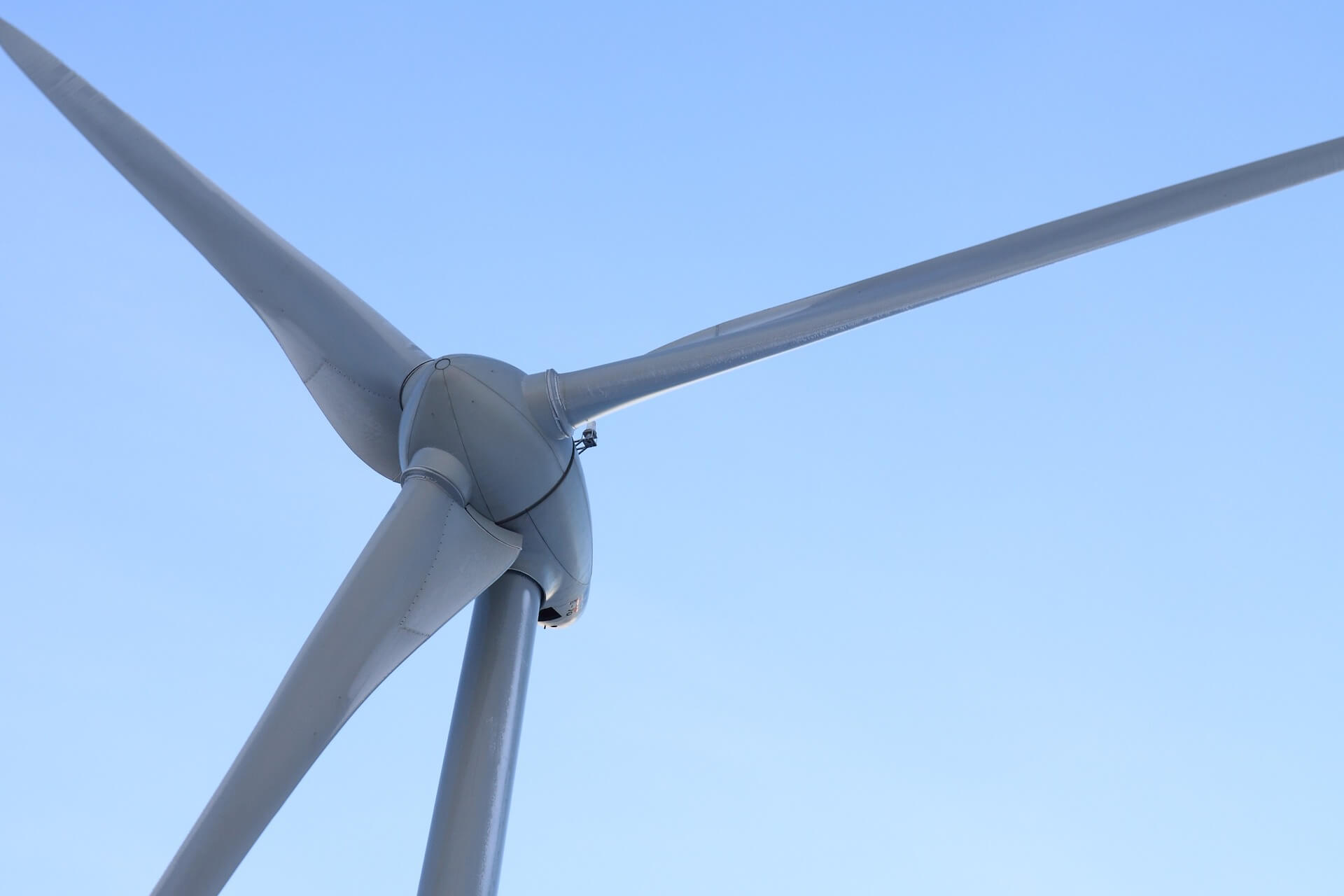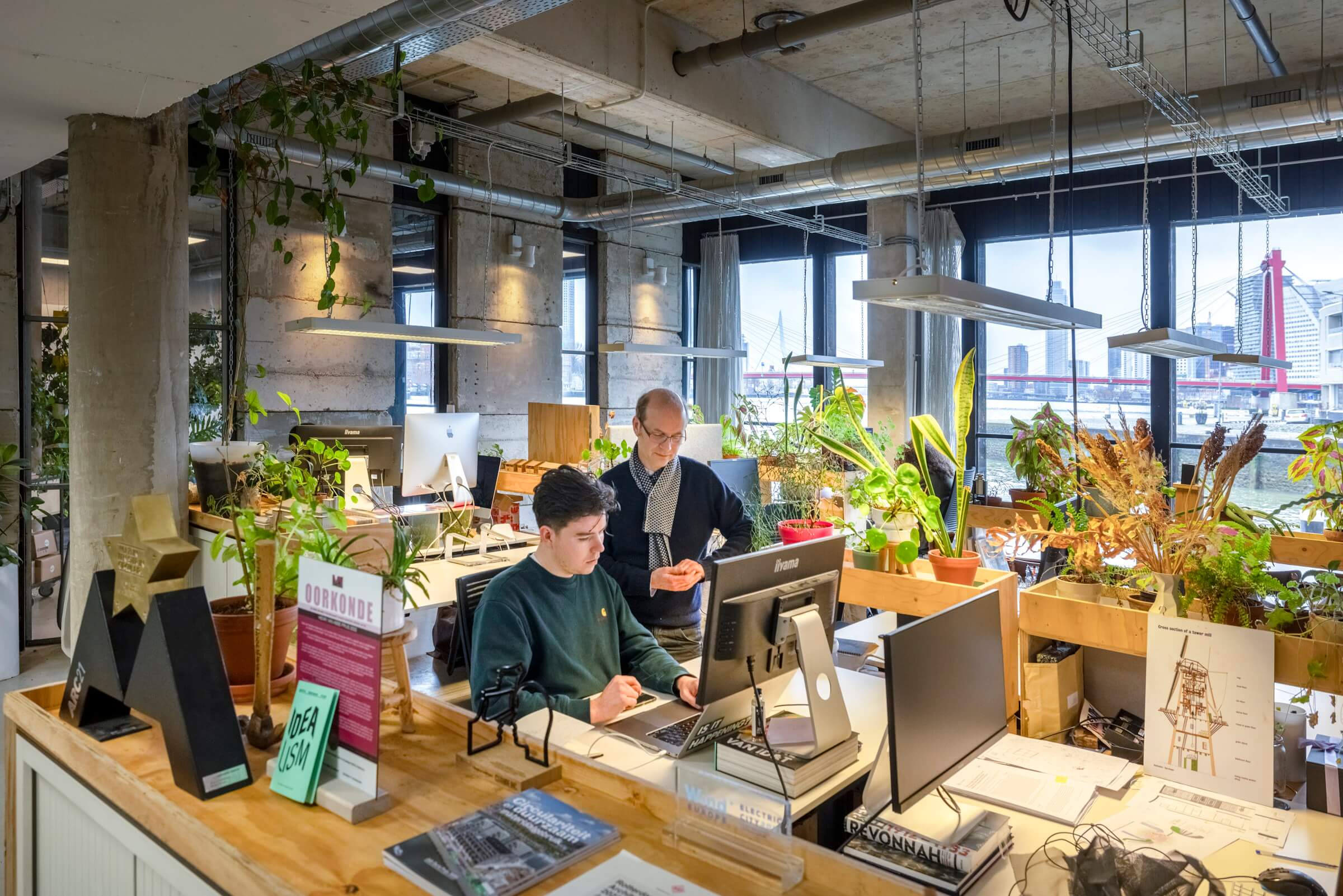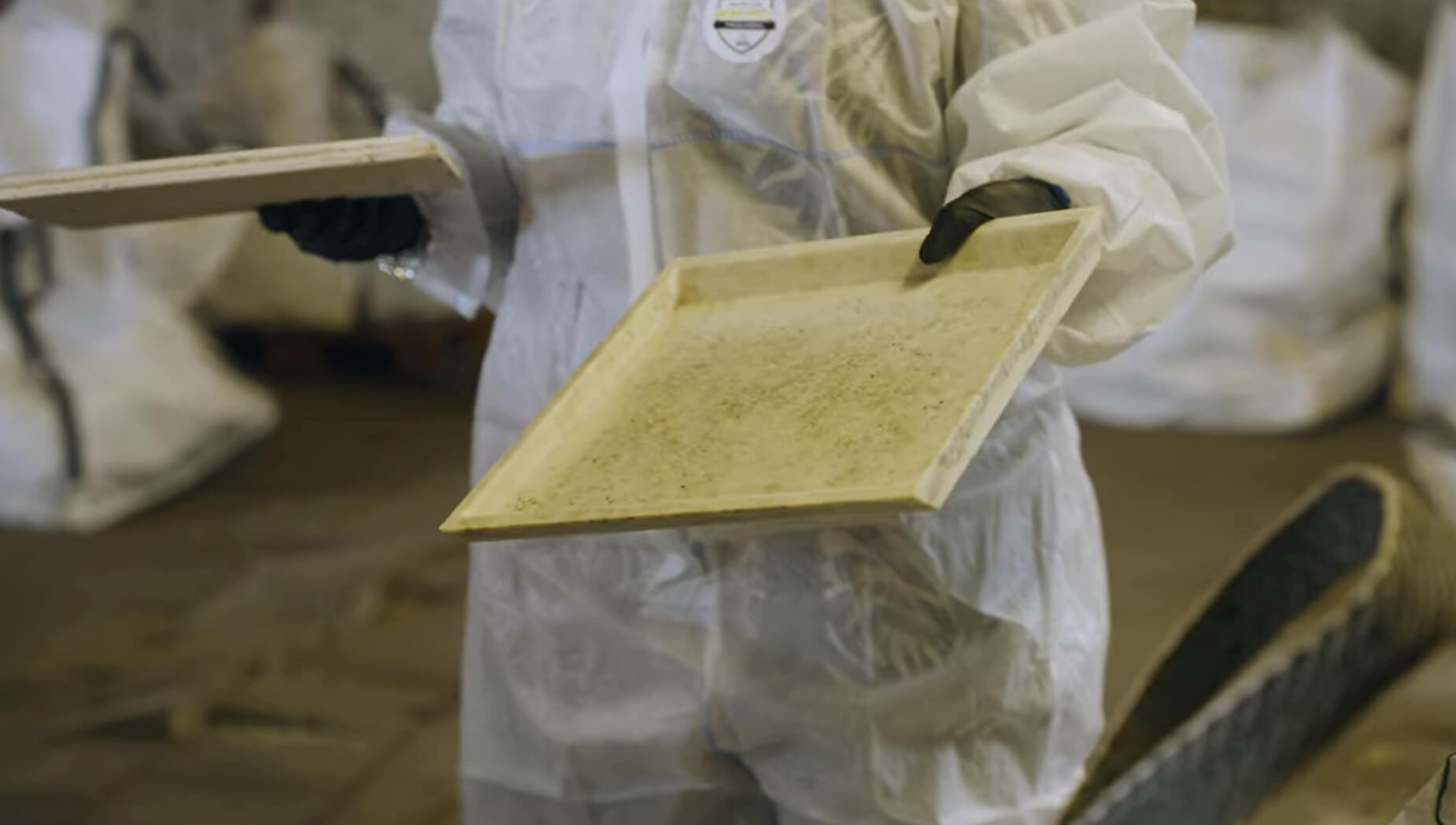
Reusing and recycling wind turbines in Rotterdam
In Rotterdam, we aim to remain leaders in the circular economy and set an example for other cities. One of the strategies we employ to achieve this ambition is the reuse of materials, including the blades from decommissioned wind turbines. Two prominent companies contributing to this effort are Blade-Made and Circular Recycling Company (CRC). Their innovative approaches are helping to build a more sustainable future for the city. Let’s get to know them better!
Innovative reuse of wind turbine blades with Blade-Made
Blade-Made is an inspiring initiative launched in 2021 by Superuse and New Citizen Design. It focuses on reusing decommissioned wind turbine blades, which are made from difficult-to-recycle glass and carbon fibre-reinforced plastics. The amount of discarded wind turbine blades in Europe is increasing annually, with an estimated 400,000 tonnes by 2030 and double that by 2050. Instead of sending these blades to landfill or incineration, Blade-Made offers an innovative solution: the blades are repurposed as sustainable building materials for urban and public spaces. Through collaborations with partners in the supply chain (such as Dura Vermeer Urban Miner, GKB Groep, and others), these blades are given a new lease of life and contribute to Rotterdam’s circular economy.

Photo: when wind turbine blades have reached the end of their life span, they can be circularly processed into sustainable building materials. Photo: Pixabay, PublicDomainPictures
A notable example of Blade-Made’s work is the playground for the Kinderparadijs Meidoorn Foundation in Rotterdam, designed by Superuse in 2006 and completed in 2008. Here, five decommissioned rotor blades were used to create a unique, maze-like playground. The blades were transformed into towers connected by nets and other elements, reducing CO2 emissions by approximately 90% compared to conventional playgrounds. This innovative design sparks children’s imaginations, allowing them to envision new adventures repeatedly.
Superuse: circular and sustainable design
Superuse Studios, an international architectural collective and co-founder of Blade-Made, focuses on circular and sustainable design—not only with wind turbine blades. Their approach revolves around ‘harvesting’ materials: reusable building materials are sought, found, and dismantled to be repurposed. The platform oogstkaart.nl, which Superuse founded in 2012 and later sold to New Horizon, acts as a marketplace for these materials. For each design, Superuse first looks at available materials on-site and then in the surrounding area.
A striking example of Superuse’s work is BlueCity, a circular showcase city established in the former Tropicana tropical swimming paradise. In 2015, BlueCity purchased the building with the goal of transforming it into a circular showcase city. Within a year, much of the old swimming pool was converted into circular workspaces, using repurposed materials such as window frames that served as partition walls. This transformation is 90% circular and illustrates how creative reuse can contribute to sustainable urban development.

Photo: Superuse Studios is located at Rotterdam’s circular rolemodel city: BlueCity. Photo: Guido Pijper.
Another project where Superuse plays a role is the Resource Station at the Rotterdam Afrikaander Market. The market generates a lot of residual waste, which requires cleanup and negatively impacts the area. The Afrikaanderwijk Cooperative took over the cleaning from the municipality of Rotterdam and collects waste separately, with the Resource Station, built from leftover and second-hand materials, promoting recycling and reuse.
Circular Recycling Company: from waste to resource
In addition to Blade-Made and Superuse, the Circular Recycling Company (CRC) is a key player in Rotterdam’s circular economy. CRC works with regional partners to recycle fibre-reinforced thermoset composites (including wind turbine blades), which are used in construction and infrastructure technology. These composites are challenging to process, but CRC is developing technologies to recycle them sustainably. This is crucial as the amount of discarded composite is expected to increase significantly in the coming decades.
Thanks to the efforts of innovative companies like Blade-Made, Superuse, and CRC, Rotterdam is making great strides towards a circular economy. These projects demonstrate how creative reuse and responsible recycling of materials can contribute to a sustainable and future-proof city.

Photo: CRC recycles and repurposes materials from old wind turbine blades into new products. Photo (and also the header photo on this page): still from a video by Port of Rotterdam.
Header photo: Superuse Studios
More information
For information about business opportunities in Rotterdam's circular scene, or if you are planning your next circularity related congress or business event and want to explore possibilities in our city, please contact us:





